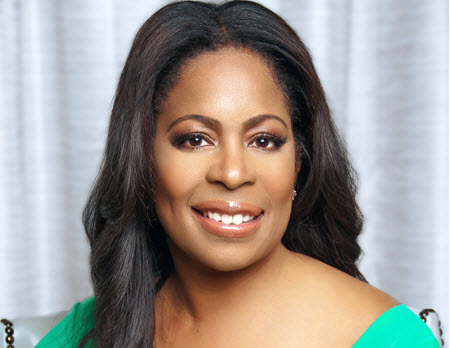Keeping TV One in Front on the Movement
The smarter way to stay on top of the multichannel video marketplace. Sign up below.
You are now subscribed
Your newsletter sign-up was successful

Cable industry veteran Michelle Rice has officially been named TV One’s general manager, overseeing the day-to-day operations of the African-American-targeted cable network.
Rice, who joined TV One at launch 14 years ago and who most recently served as executive vice president of content distribution, takes her new post as the network prepares to celebrate Black History Month with a slew of programs, including the Feb. 11 original movie, Behind the Movement, which follows civil rights icon Rosa Parks in the days before the famous 1955 Montgomery, Ala., bus boycott. Rice recently spoke to Multichannel News about the TV One brand, the challenges facing the cable industry and the #MeToo movement. An edited version of the interview appears below.
Related: 'Our Time' Has Come|Black History Month: What to Watch
MCN: How would you define the TV One brand?
Michelle Rice: TV One introduced the branding tagline of “Represent” a couple of years ago, and that’s really something that we’re going to continue to build on. It will be a common thread in pretty much everything we do at TV One in 2018. We really kick that off in a big way during Black History Month. The network will launch a new short video campaign featuring Common that will discuss a variety of black history topics and issues.
MCN: How does TV One remain competitive in a very crowded marketplace in which some general entertainment networks are beginning to aggressively reach out to African-American viewers?
MR: I started at TV One 14 years ago, and it’s always been our mission to have an authentic voice in this space, and we do that 365 days a year. We are reaching out to our core audience with our authentic voices, our diverse stories and that’s really how we got into this business.
While there’s some good [African-American-targeted] programming on other networks, it’s not their core audience. They’re kind of leveraging the black audience, which certainly they should — it’s a very powerful audience.
We’ve been saying for years that African-Americans over-index on the use of digital products and services, so they are among cable’s best customers. So the product that we see on television really should mirror our society. We’re excited to see people really telling authentic stories, but as I said, we do that 365 days a year and we believe that when you come to TV One you’re really going to learn something. Obviously, television is about entertainment, but we love to have the opportunity to tell some lesser-known stories. We’re excited about the opportunity to do that.
MCN: As a female executive heading up a cable network, what do you make of the influence of the current #MeToo and Time’s Up movements? Is this a momentary trend or one that will fundamentally change the entertainment industry?
MR: It’s an exciting time to be a woman in this country. I recently did a speech for the local [Women in Cable Telecommunications] chapter that was based on the book We Should All Be Feminists, and I said that feminism is really about everyone — both men and women. I said to the men in the room, if you have a daughter, a wife, a mother, and you seek equity in the treatment of the women in your life, then you are a feminist. I think that people look at feminism as a dirty word, but it really is the equal empowerment of women. So again, it’s an exciting time to be a woman in this country and in this business, and I think we realize that our collective voice matters. We can speak truth to power in that if we support each other, we can make real change in politics, in the industry and in the business.
Related: Michelle Rice Named to MCN Wonder Women Class of 2016
The smarter way to stay on top of the multichannel video marketplace. Sign up below.
MCN: What are the biggest challenges for the industry right now and for networks like TV One?
MR: Well, my background is distribution, and that is the biggest challenge. For every launch and subscriber we gain, we probably churn a hundred. So it’s a challenge in terms of the TV everywhere movement. It is a challenge when I look at how my children are consuming content; will they ever grow up to be cable customers? I don’t know. So the challenge for us is really to make sure that we are meeting consumers where they are, and that we are competitive in terms of the quality of content and where content is available. There are always rights issues and things of that nature, so we just need to be in better partnership with our distributors. We need to make sure that we are providing the best product, the best programming and the best service for our viewers, and that means communicating with them through social media and various platforms, understanding what their needs and desires are, and meeting them where they are.
R. Thomas Umstead serves as senior content producer, programming for Multichannel News, Broadcasting + Cable and Next TV. During his more than 30-year career as a print and online journalist, Umstead has written articles on a variety of subjects ranging from TV technology, marketing and sports production to content distribution and development. He has provided expert commentary on television issues and trends for such TV, print, radio and streaming outlets as Fox News, CNBC, the Today show, USA Today, The New York Times and National Public Radio. Umstead has also filmed, produced and edited more than 100 original video interviews, profiles and news reports featuring key cable television executives as well as entertainers and celebrity personalities.

